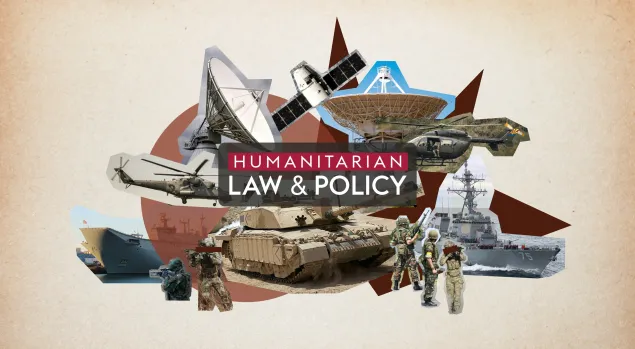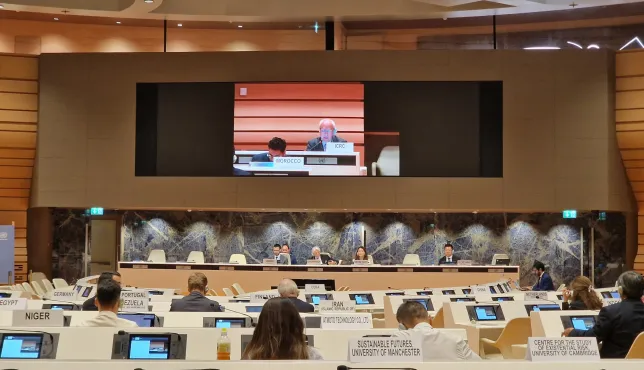Military operations in space and outer space weapons
As the role of space systems in military operations during armed conflict increases, the likelihood of these systems being targeted also increases. Current and future threats to space systems include electronic warfare, cyber operations and directed-energy operations; they also include the use of orbit-based and ground-based anti-satellite weapons or other counter-space military capabilities, such as harmful in-orbit rendezvous and proximity operations.
Space systems, particularly navigation, communications and remote-sensing satellites, play an indispensable role in critical civilian infrastructure, especially in the energy and communications sectors. These sectors enable the provision of the essential services on which civilians depend, such as food supply, water, electricity, sanitation, waste management and health care.
Space systems also contribute to humanitarian relief operations and emergency responses. Additionally, space systems are critical to the functioning, protection, safety or maintenance of certain objects and people specifically protected under international law. Disrupting or destroying space systems carrying out such functions could have far-reaching consequences for the civilian population, including humanitarian organizations.
Whatever military activities or operations take place in outer space are constrained by existing international law.





